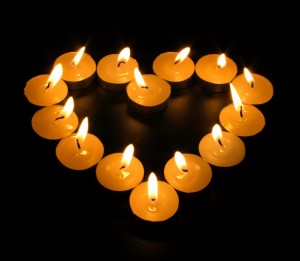The 27-year-old young woman had called for an appointment because her father died six months ago. Now she sat across from me, squirming slightly on the comfortable suede sofa in my office. I asked how I could help her. She fidgeted a bit more, looking down at her hands. “What I want to know is . . .” she started off slowly and then rushed into the rest of the question, “Am I grieving right?”
six months ago. Now she sat across from me, squirming slightly on the comfortable suede sofa in my office. I asked how I could help her. She fidgeted a bit more, looking down at her hands. “What I want to know is . . .” she started off slowly and then rushed into the rest of the question, “Am I grieving right?”
My client’s question was a valid one considering that the prevailing concept of grief continues to be that there are “stages” one must go through in order to grieve in a healthy manner. The seminal work of Elizabeth Kübler-Ross in the 1960’s led to the now-familiar “Five stages of grief.” Interestingly, Kübler-Ross’ work was actually with dying patients and the stages were initially used to describe the process that dying people go through, not those who are grieving. Nonetheless, the segue was soon made to the field of grief and the idea that the bereaved should experience Denial, Anger, Bargaining, Depression, and Acceptance – and pretty much in that order – was popularized in our society.
Kübler-Ross’ research opened up important avenues in the field of bereavement, but it soon became apparent that the 5 Stages were not a one-size-fits-all approach. However, her ideas did encourage and implant the idea about “grief work” or the notion that you must experience some kind of grief response after the death of a loved one. If you didn’t, then you were either an unfeeling person or could expect to have some kind of delayed reaction later.
Thus, my client’s question to me, “Am I grieving right?” reflected her concern that something was wrong with her because she wasn’t experiencing grief in the “normal” way. Recent research by Dr. George Bonanno and others has shown that around half of people who lose a loved one will exhibit only mild symptoms of depression and distress while 10-15% of grievers will experience chronic depression.
The bottom line is that there are a lot of individual differences in grief. When my partner died, I was surprised at the extreme depression, pain, and loss of functioning I went through for months and even years. I, like many others, really did need to “do some work” around my grief and the research demonstrates that some of us will experience more intense reactions that may need the assistance of therapy and grief support groups.
My young client, on the other hand, grieved and sobbed intensely for her father the day he died and since then has been subject to only fleeting, wistful moments of longing for him. For awhile, she wondered if she might be suppressing her “real grief” because she doesn’t tend to be a particularly emotional person. As time has passed, however, she is able to see that she has grieved in the way that naturally worked for her and there is nothing wrong with her process.
As we move out of the “stages of grief” and “grief work” era, we can now see that the answer to “Am I grieving right?” is, inevitably, “Yes.”
Takeaway points: It’s very important to realize that grief comes in many, many forms so we need to be careful about thinking there is a “right” way to grieve. Not everyone will need to do “grief work” and display extreme sadness. Others will be very affected by the loss of a loved one and experience symptoms of depression and difficulty functioning. And then there is everything in between. Grief covers the whole gamut of emotions and experiences and we need to move from thinking of how we and others “should” grieve to an acceptance of individual, natural grief processes.
What are your thoughts about how one “should” grieve? Have you ever been in a situation where someone thought you were grieving “wrong”?
If you are having trouble with grief or loss – and we know that’s okay – I’m available to walk through it with you. Give me a call at 650-529-9059 or email me.



 twenty-five years or more. And not only do we often stay in the same field, some of us have held the same job for that long. In this economy, of course, having any job is something to be grateful for!
twenty-five years or more. And not only do we often stay in the same field, some of us have held the same job for that long. In this economy, of course, having any job is something to be grateful for!

